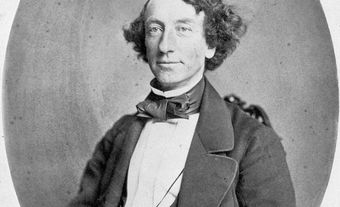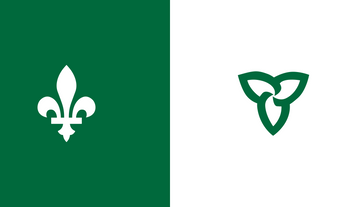Land Question, PEI
In 1767 the British government decided to allocate, prior to settlement, virtually all of PEI to proprietors who would become semifeudal resident landlords paying annual quitrents to the Crown to finance the cost of governing and colonizing the Island. Most proprietors remained absentees, their quitrents perpetually in arrears and their colonizing obligations unfulfilled. Soon after 1770, PEI residents sought to force the proprietors either to live up to their obligations or to surrender their land to those in actual possession. An attempt by Walter PATTERSON's Island government to force the sale of land by distraint proceedings (seizure of property) in 1780-81 failed. The question had already taken on a circular quality it was never to lose. The Island's elite insisted that the terms of the grants, which were unrealistic, be fulfilled or the land be forfeited, whereas the proprietors insisted that they could not fulfil the terms because the actions of the Island's elite and government made any investment insecure.
Escheat, the process by which unimproved lands would revert to the Crown and become subject to reallocation, became the rallying cry throughout the 19th century, although it shifted considerably in meaning. Under Edmund Fanning, lieutenant-governor from 1787-1804, and his immediate successors, escheat implied little more than the transfer of proprietorship from absentee to resident landlord. But the 1830 enfranchisement of Roman Catholics, most of them tenants, led to the emergence of a popularly based Escheat Party, which called for distribution of the land to those in actual occupation. The British government, ever protective of property rights, opposed escheat without compensation. Gradually the absentees were eliminated by the purchase of their lands.
In 1860 the PEI government created a land commission, chaired by Joseph Howe, to recommend the final resolution of the land question. It called in its report of the imperial loan of £100 000 to complete the repurchase process. This report was never implemented, but by the 1880s most of PEI was in the hands of the actual occupiers. Resentment over the Land Question remained, particularly against Britain for its refusal to respect the popular will, and in some quarters against Island governments which had acquiesced in the principle of compensation.

 Share on Facebook
Share on Facebook Share on X
Share on X Share by Email
Share by Email Share on Google Classroom
Share on Google Classroom


